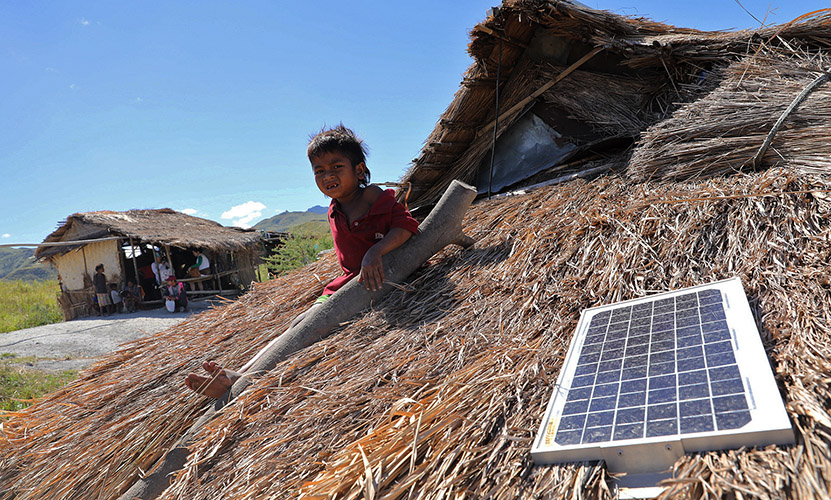
Senator Win Gatchalian wants to infuse new technology into the efforts to achieve 100-percent electrification in rural areas of the Philippines, especially in isolated islands and other remote areas.
Gatchalian, who chairs the Senate Committee on Energy, said the goal of his committee is to encourage the Department of Energy to look for innovative solutions because of limited funding.
“If we want to achieve 100-percent household electrification by 2022, we need to look for other technologies. Let’s improve the process of electrification,” he said.
The lawmaker said that grid extension, which was not only costly but also already antiquated, was not the only way to electrify unserved households.
“We have to think of creative and innovative ideas to power our communities. For example, we have a lot of islands and remote areas that cannot be reached by electric wires but may be electrified by putting up microgrids and individual home systems, including solar panel systems,” he said.
He called on electric cooperatives and private sector energy players to work together to develop new and cheaper technologies for more efficient operations.
“When we implement the Rural Electrification Program, we want to prevent conflicts between local government units, communities, and electric cooperatives,” he said.
“The goal here is to really bring electricity to every single household in the Philippines without conflict. At the end of the day, we’re working for the consumers,” he added.
Meanwhile, Gatchalian also stressed that while he favors the new cash-based budgeting system, he does not approve of slashing the budget of the National Electrification Administration (NEA).
He revealed that of the P1.6 billion budget that NEA requested, only less than a billion was allocated for the agency in the National Expenditure Program.
“The impact, of course, is that the number of sitios that NEA will be able to electrify will also decrease,” he said.
Gatchalian said about 300 sitios would suffer next year because of the budget cut. He stressed the importance of electrification remaining unhampered, saying this is important in helping families overcome poverty.
“I do not agree with the budget cut for rural electrification because we can see that 2.7 million households still do not have access to electricity, and 1.5 million of these are from Mindanao: the home island of the President,” he said.
“The target is to electrify these 2.7 million households by 2022. The marching order of the President is that by 2022, everyone should have access to electricity,” he added.
The senator said the energy committee will carefully evaluate which projects were completed in 2018 and discern why NEA was not able to fully utilize its budget.
“We also have to be prudent because it also isn’t right that they ask for funding that they cannot spend,” he said.
“I think there are problems with the documentation – normal bureaucratic red tape is the issue – so we will need to evaluate. But as a principle, the budget for rural electrification should not be cut as this is our best chance to provide electricity to the homes of poor families throughout the countryside,” he added.


